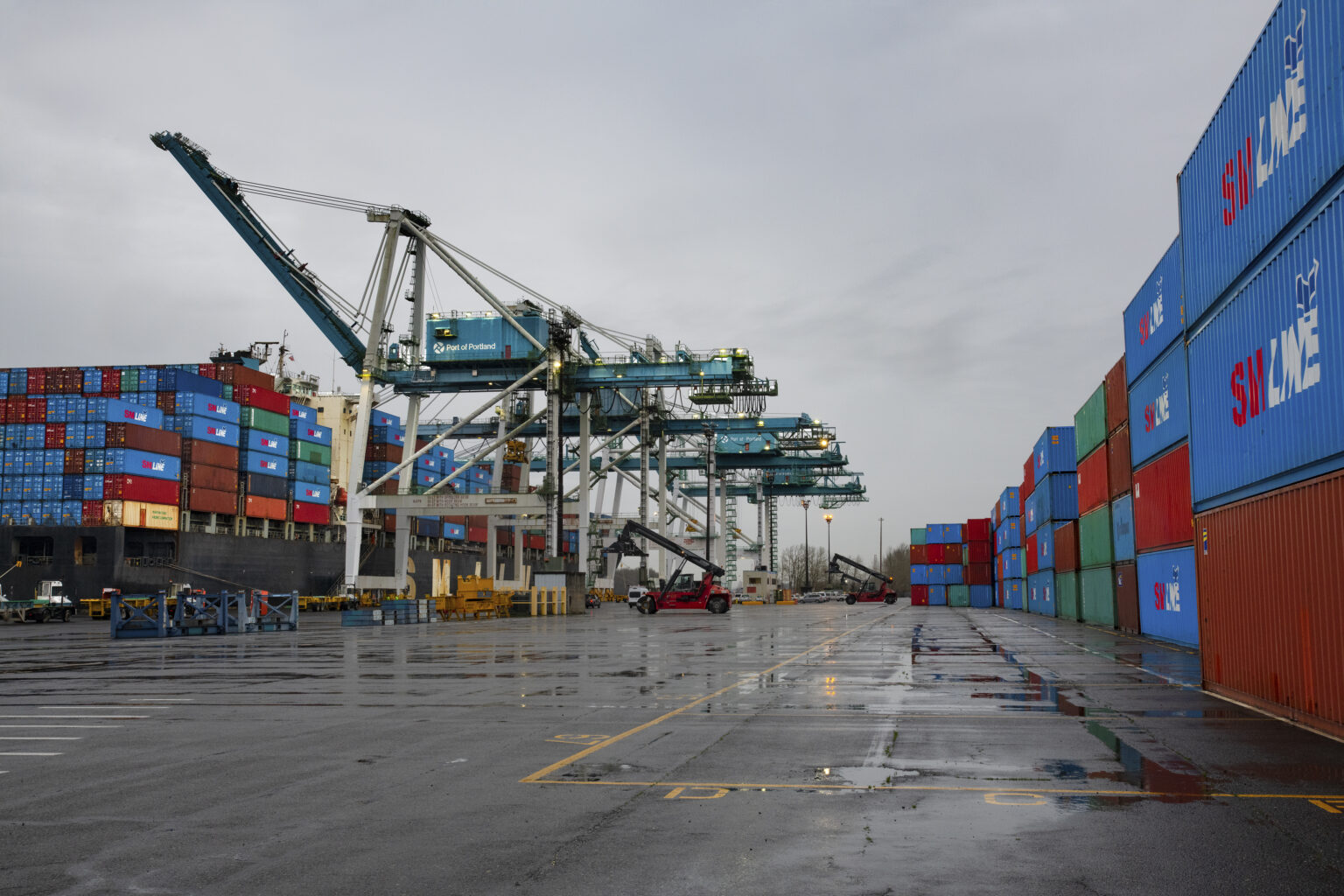Capitol Chatter: Move for Oregon counties to join Idaho ‘longest of longshots’
Published 5:36 pm Thursday, May 27, 2021

- Capital Chatter square logo
When Oregon made national news last week, “it wasn’t because of riots in Portland, and it wasn’t because of other issues from our most populated city,” said Rep. David Brock Smith, R-Port Orford.
“It was because an overwhelming majority of constituents in five counties said, ‘I don’t feel represented by the urban politicians of this state, and I would like my county commissioners to look at joining Idaho.’”
Trending
Union and Jefferson counties voted last year, so seven counties have now voted to pursue leaving Oregon.
A New York Times article gave this summation of the May 18 election results: “Grant, Baker, Lake, Sherman and Malheur Counties, the five currently in revolt, are huge in area but minuscule in population and thus political clout at the capital in Salem. The counties contain 63,000 people over about 26,000 square miles, an area about the same size as Massachusetts, Connecticut, New Jersey, Rhode Island and Delaware combined.”
Floyd McKay, a retired journalism professor and longtime observer of Northwest politics, put the election results – and the national overreaction – in perspective.
“This is a serious voice for rural voters in Eastern Oregon, but it is far from a rebellion, let alone a likely rejiggering of the map. Approval of the legislatures in Idaho and Oregon would be required, and Congress would also need to assent,” McKay wrote on Post Alley. “Don’t rip up your OSU Beavers jersey in favor of an Idaho Vandals shirt, dad, ain’t happening very soon.”
As McKay noted previously, Washington state at least has one major city on its east side, Spokane, to provide a bit of balance with liberal Seattle. Not so, Oregon.
The Portland metro area dominates Oregon, but Portland and rural Oregon are inextricably linked. Or at least we thought so. Indeed, the secessionist desire to form the State of Jefferson out of Southern Oregon and Northern California always seemed more a state of mind than a political possibility. It would be the longest of longshots for the Greater Idaho movement to succeed in shifting Eastern and Southern Oregon into the State of Idaho.
Trending
Most rural residents are geographically removed from the Portland violence, but the city’s well-documented problems feed the rural-urban divide.
With the dramatic increase in Portland-area shootings, rural legislators and their constituents wonder why Democrats don’t focus on that violence instead of statewide gun control legislation that restricts law-abiding rural residents.
The protest-related violence in Portland also seems incomprehensible to rural Oregonians, though House Speaker Tina Kotek, D-Portland, said it has not been a major topic within the State Capitol this year. Police reform has been, following the national soul-searching and Oregon protests that stemmed from the murder of George Floyd in Minneapolis a year ago.
Kotek said the Legislature is on track to pass 16 police reform bills this year, most of them with solid bipartisan support, on top of six passed during last year’s special sessions.
Outside the Capitol, there is palpable concern about the destructive protests.
“I receive daily emails from Southern Oregon citizens that are distressed by the ongoing civil unrest in Portland. Many citizens demand that we do something,” Rep. Gary Leif, R-Roseburg, wrote in his constituent newsletter last week.
“My heart breaks for the people of Portland and I know the national news is not looking favorable on our state. But the reality is, that the state legislature has no role in solving the problem.”
Leif said that is the responsibility of local leadership.
New York Times columnist Nicholas Kristof, who grew up on a farm outside Yamhill, cites a lack of that leadership in progressive Portland, a resilient city he dearly loves.
“Last summer President Donald Trump inflamed the crisis in Portland by sending in unneeded federal troops to deal with mostly peaceful protests. That aggravated the upheaval, provoked months of rioting and empowered fringe groups, and perhaps it also obscured the need to stand resolutely against violence by local troublemakers on both left and right. There was too much deference to people sowing chaos under the banner of social justice, perhaps for fear of seeming unprogressive, and after the feds left, the city never tried hard enough to pivot to re-establish order,” Kristof wrote.
Portland’s inability to solve its urban problems provides a national lesson: “Grand gestures for justice are fine, but they can’t substitute for quiet competence in keeping people safe, getting people housed or picking up the garbage.”
When will it end?: The 2021 Legislature is unlikely to adjourn much before its June 27 constitutional deadline. “We’re going to have to go to the very end,” Speaker Kotek told journalists this week.
Conducting business online, with virtual committee hearings, takes longer. So do House floor debates and votes, because some lawmakers must be summoned from their offices due to the COVID-19 protocols. Kotek also said state budget work was affected by receiving late guidance from the federal government on allowable uses of this year’s coronavirus relief money.
Key legislators and staff have weekly conversations about reopening the Capitol to the public, Kotek said, but Marion County would need to be in the low-risk category. Marion currently is high-risk. Fifty-four new confirmed and presumed cases of COVID-19 were reported Thursday, exceeded only by 64 cases in Multnomah County.
Disclosures: I have longtime connections to two people I mentioned. Floyd McKay, then a commentator/news analyst at KGW-TV, was my journalism instructor and newspaper adviser at Linfield College. Nick Kristof, then a student at Yamhill-Carlton High School and a leader in Future Farmers of America, was a reporter at the McMinnville News-Register when I was starting my journalism career there.
Postscript: In his May 21 newsletter, Kristof wrote: “I don’t think this ‘Greater Idaho’ will ever come to pass, partly because both Oregon and Idaho state legislatures would have to approve, but it’s worth paying attention to the frustration in rural parts of America. Some of (President Joe) Biden’s policies, like broadband-for-all, go over very well in these areas, and I think some active listening on the part of liberal America to the distress in low-income rural America would also help. It’s a fissure that I don’t think is getting adequate attention, and water shortages in coming years may make it worse.”





